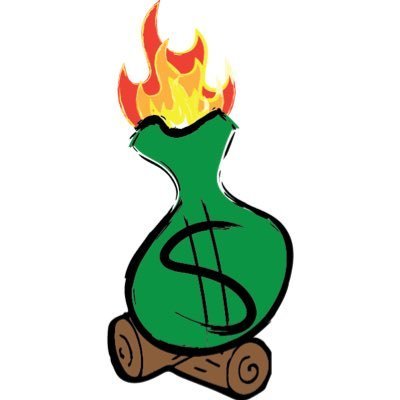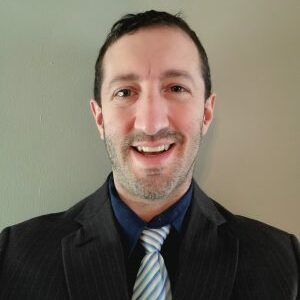
Know Your Blogger Series
How to FIRE

Sam and I started How To FIRE back in July 2018 after feeling inspired by so many other content creators, and we just hit our 2-year blogging anniversary. The name isn’t the most unique out there, but to us, it symbolizes the entire journey needed to reach our financial goals.
It is important to us to provide resources and knowledge for those who want to improve their financial lives as we did. Our overall goal is to normalize discussing your finances with others.
Check out our Q&A with How to FIRE here.
It is important to us to provide resources and knowledge for those who want to improve their financial lives as we did. Our overall goal is to normalize discussing your finances with others.
Check out our Q&A with How to FIRE here.
Come learn about the blog, How to FIRE, as they try to make personal finance easy for others.
Each week at Personal Finance Blogs, we publish interviews from amazing bloggers from the personal finance space. This week, we are featuring the blog, How to FIRE.
During these weekly features, we are hoping to provide a way for you to interact and learn more about different blogs in the personal finance space.
Below, you can read more about the story behind How to FIRE, learn about the author, and learn personal finance tips from How to FIRE to help you improve your financial situation.
A big thanks for How to FIRE for this interview! Now, we will turn it over to the author for this interview.
During these weekly features, we are hoping to provide a way for you to interact and learn more about different blogs in the personal finance space.
Below, you can read more about the story behind How to FIRE, learn about the author, and learn personal finance tips from How to FIRE to help you improve your financial situation.
A big thanks for How to FIRE for this interview! Now, we will turn it over to the author for this interview.
Tell us about How to FIRE
Sam and I started How To FIRE back in July 2018 after feeling inspired by so many other content creators, and we just hit our 2-year blogging anniversary. The name isn’t the most unique out there, but to us, it symbolizes the entire journey needed to reach our financial goals.
Our mission is to help others unlock freedom and flexibility in their lives by making personal finance easy. We discuss everything financial independence retire early (FIRE) related: budgeting, saving/investing, paying off debt, side hustles, travel hacking and so much more.
It is important to us to provide resources and knowledge for those who want to improve their financial lives as we did. Our overall goal is to normalize discussing your finances with others.
What makes you and your blog unique?
We practice what we preach. Having found the FIRE movement at a fairly young age compared to most, this has allowed us to understand the importance of saving and investing. By doing so, we reached CoastFI in 2019, which means we no longer need to contribute to our retirement accounts again to have a more than comfortable retirement at a normal age (65). At this point, any additional contributions just buys us years of freedom.
As for what makes our blog unique – we offer a free eBook for the person who may be coming in with little to no financial knowledge. We also have a 12-Chapter FIRE Guide, a FIRE Calculator that I created, and tons of free printables and digital downloads. We focus more on teaching the principles and how to apply them, than ourselves and our story.
What does “being good with your personal finances” mean to you?
Being good with personal finances can have different meanings, both literal and more meaningful. We believe that if you are appropriately aligning your spending with what you value, then you are being good with money. You don’t need to be a millionaire or the most frugal person in the world to be good with your finances.
In the most simplistic terms, someone who is good with their personal finances likely spends less than they earn, has a plan for their savings and investments, and understands where their money goes each month.
What are some habits you practice to keep your personal finances in order?
Here are the habits that we practice regularly:
- We budget every month as a couple and review our progress weekly
- We have all of our investments set on autopilot
- We never carry a credit card balance and pay our cards off in full each month
- We plan for large purchases and never buy them before we have the money saved up
- We create sinking funds for planned and unplanned expenses
What are your three articles people should read to get to know you and your message better on your site?
When we first started getting our finances in order, we found Dave Ramsey. After following his steps for several months we made a ton of progress. But as we began to pay off our debt we realized that it wasn’t the most optimal plan. This led us to find the FIRE movement, and the rest is history.
How to Use the Dave Ramsey Baby Steps as a Gateway to FIRE – Read this article to see how we transitioned from the Baby Steps to a pursing FIRE.
FIRE Movement: How To Unlock Freedom and Flexibility – If you have no idea what the FIRE movement is, this article fully breaks it down for you and provides you with all of our best resources.
I Quit My Job and We’re Going To Be OK – After pursuing FIRE for several years we reached a point where we had the flexibility to allow my wife to quit her toxic job and become a full-time entrepreneur. Here’s the full story and the planning that went into it.
For someone looking to improve their financial situation, what’s your best advice?
For someone looking to improve their financial situation in the short-term, my recommendation is to figure out where your money is going each month. Start to make a budget, understand how much you earn and how much you’re actually spending on everything each month. You might be surprised where it seemingly all disappears to.
For a more medium-term goal, I would suggest you start by paying off your debt and developing a good emergency fund. As you pay off more debt, you’ll free up expenses allowing you to save and invest more. Having a larger emergency fund means you’re better protected for the unknown which buys you safety and security in the event that something happens, and something will happen eventually.
For a long-term goal, once you’ve knocked out the things mentioned above you should work towards maxing out all of your retirement accounts. Also, if you have an HDHP (high deductible health plan) look into maxing your HSA, too. If there’s still money left over, then you can think about getting into rentals or adding additional dollars to a taxable brokerage account.
What’s an area of your life which has benefited from improving your personal finances? Have there been any areas of your life which have suffered?
Improving our finances has resulted in us having a lot to be thankful for. After years of hard work and reaching CoastFI, Sam was able to quit her high-stress finance job in July 2019 to pursue our blog and business consulting side hustles full-time. Without paying down debt, investing, and saving an emergency fund, this never would have been possible. This change has given us happiness and flexibility.
However, we have learned that the self-employed never sleep! With this has come the challenge to manage our time wisely and still prioritize a work-life balance. It’s easy to work around the clock when you enjoy what you are doing. So, there may be less time to make healthy lifestyle choices and spend time with friends and family. This is one of the goals that we are currently working to improve.
In your opinion, what should you do first? Pay down debt, or invest?
The answer to this question is complex because it will depend on your situation. As a rule of thumb, you should always invest up to your employer match first because it’s free money. But, if you have debt that is a 5% interest rate or higher, we believe you should work on paying this down simultaneously before maxing any investment accounts. If it’s less than 5%, you’ll need to weigh the pros and cons. Market returns could outweigh your interest rate, but you might mentally feel better about eliminating your debt.
After your debt is paid off, start investing more right away. You can even put your contributions on an automatic investment plan, so you don’t even have to think about it. This will also eliminate any temptation to spend the money instead. Most importantly, don’t allow yourself to go back into debt!
Do you have any financial mistakes you’d like to share, and how have you grown from these mistakes to improve your personal finances?
During the period of us paying off debt while in college, Sam got into a car accident in 2015 that totaled her vehicle. Instead of making the smart decision to buy a used vehicle and pocket the rest of the insurance money for our debt, we bought a brand new white Jeep Patriot.
To be honest, we both hated that car! In 2017, after a year of being married, we traded it in for a crazy deal on a Hyundai Santa Fe. Between it being driven previously by the dealer’s employees, other rebates, and some negotiating, we were able to knock down the price by almost 40% off MSRP.
Another financial mistake that we regret is how quickly we jumped into buying a house. The apartment we were living in was old and cramped, so we thought it was in our best interest. We got the keys about a month before we got married, and we love our house! However, we failed to put down 20%, so now we are paying the price in PMI. We’ll never do that again. At least we’re saving several hundred dollars a month compared to renting while building some equity.
If you received a $5,000,000 windfall tomorrow, what would you do with the Money?
I’m sure anyone following the FIRE movement might say the same thing….we’d retire with 5,000,000! To ensure that our money lasts for the lifestyle we want to live, it would be essential that we build a diversified portfolio with the money as well as invest in real estate.
I can see us traveling the world once we retire while still continuing with our blog because it is both a hobby and business of ours. But, we’d 100% be on our own terms with the freedom and flexibility we’ve always dreamed of. We’ve always wanted to own a camper and travel around, so we’d do both domestic and international traveling.
Why do you believe learning about money and caring about personal finance is important?
Learning about money and caring about personal finance should be as normal as brushing your teeth twice a day. No one should question it, and everyone should do it. Cracking the money code is what will help you prioritize what you value in life. Many people say that if you show them your budget, they can show you what you care about.
We only get one life, and Sam and I truly believe that if you are smart with your finances, that you can get the most out of your time.
About the Author:
John Hawrylack is a personal finance expert, entrepreneur, and Software Engineer with a BS in Computer Science and a Masters in Software Engineering. Along with his wife, Sam, they help others discover their own version of FIRE on their blog, How To FIRE. You can reach John on Twitter @HowToFIRE.
Thank you for reading this interview, and thank you, How to FIRE, for providing us with some great personal finance tips!


